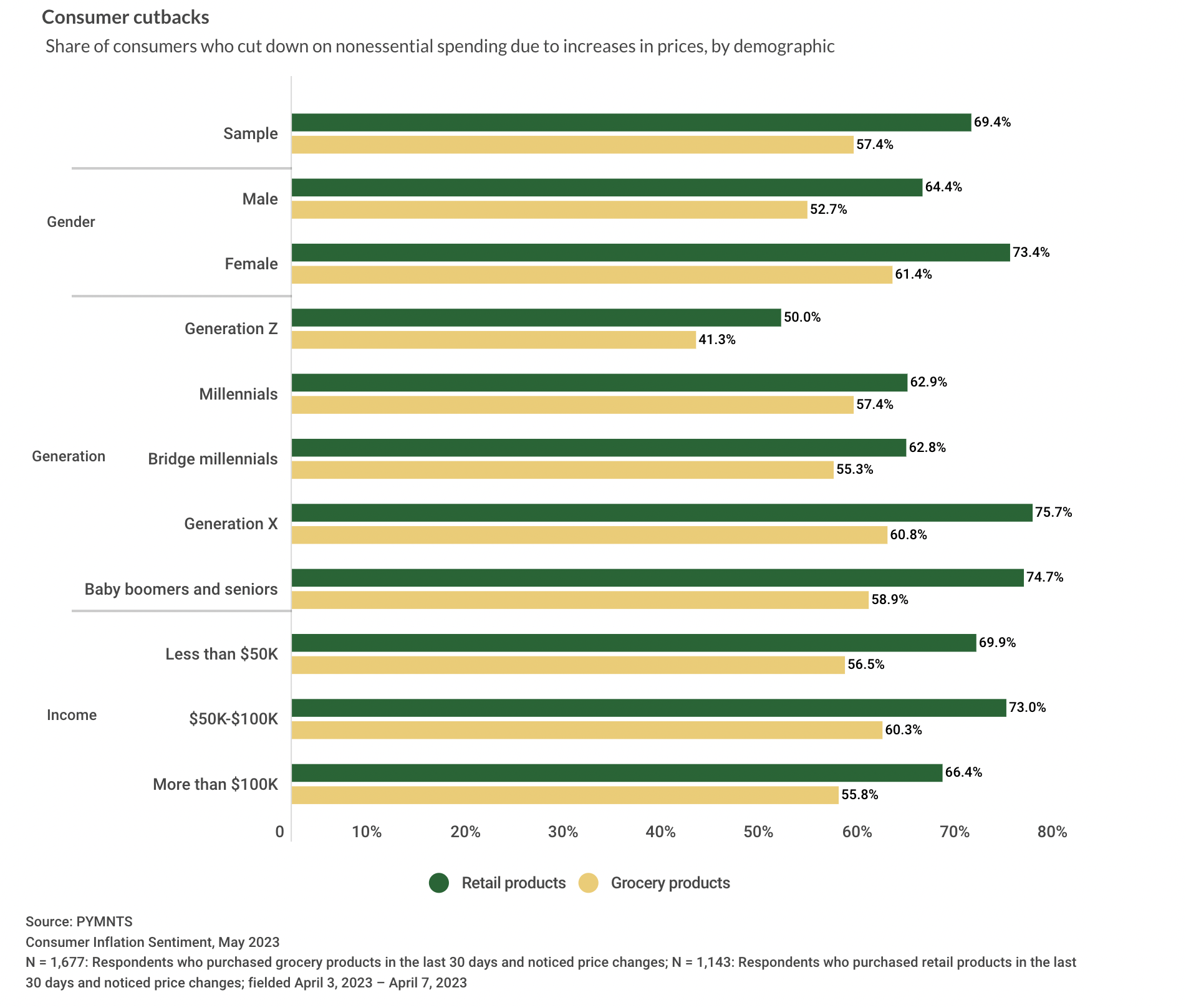
As consumers continue to see economic pressures eat away at their purchasing power, PYMNTS Intelligence indicated women are more likely than men to cut back on buying items at the grocery store that they do not need.

The PYMNTS Intelligence study “Consumer Inflation Sentiment Report: Consumers Cut Back by Trading Down,” drew from a spring survey of more than 2,000 U.S. consumers to get a sense of how rising prices are affecting their shopping habits and relationships with retailers.
The results revealed that 61% of female consumers cut down on nonessential spending on grocery products due to increases in prices. Meanwhile, 53% of male consumers said the same.
Grocers are seeing inflationary pressures impact consumers’ spending. Take, for instance, grocery giant Albertsons Companies, which reported its earnings results for the quarter ended Dec. 2 on Tuesday (Jan. 9).
“While we are benefiting from our productivity initiatives, we expect to continue to see the impacts of investments in associate wages and benefits, cycling significant prior year food inflation, customers receiving less government assistance, the resumption of student loan payments and other types of payment deferrals [and] inflationary cost increases…,” CEO Vivek Sankaran said in a statement.
Walmart, the world’s largest grocery retailer, has also been seeing the ongoing impacts of years of inflation affect consumers’ food purchasing behaviors, with shoppers continuing to tighten their belts.
“Grocery inflation moderated nearly 300 basis points from Q2 levels to a mid-single-digit increase versus last year, but on a two-year stack, it was still elevated at a high-teens percentage,” the mega-retailer’s chief financial officer, John David Rainey, told analysts on the company’s most recent earnings call in November. “We see our customers showing ongoing discretion in seeking value to manage within their household budget.”